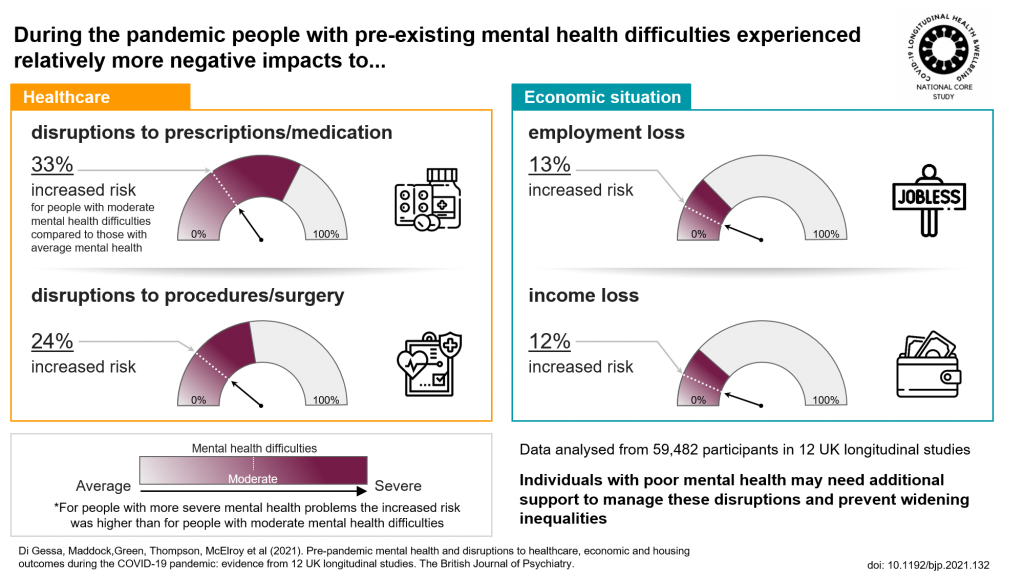30th September 2021

People who had higher pre-pandemic levels of depression or anxiety have been more severely affected by disruption to jobs and healthcare during the pandemic, according to a new study published today.
The study looked at data from 59,482 people who are surveyed regularly as part of 12 ongoing longitudinal population studies in England, including TwinsUK.
The researchers found that people who had higher levels of anxiety and depression symptoms before the pandemic were 24% more likely to have had delays to medical procedures, 12% more likely to lose their job, and 33% more likely to have had disruption to prescriptions or medication during the first 10 months of the pandemic than those with average levels of anxiety and depression symptoms.
Those with more severe symptoms of depression or anxiety experienced a much greater likelihood of disruptions to jobs, income and healthcare, the study found.
Senior author Dr Praveetha Patalay, University College London, said:
“Our findings highlight that the wider health and economic impacts of the pandemic have been disproportionately experienced by those with mental health difficulties, potentially leading to worsening longer term outcomes, even post-pandemic, for those already experiencing poor mental health.”
The work was conducted as part of the COVID-19 Longitudinal Health and Wellbeing National Core study. The study is a collaboration led by University College London and involves researchers at many other universities, including TwinsUK researchers at King’s College London.
Co-first author and TwinsUK researcher Dr Ellen Thompson said:
“Thank you to all of our TwinsUK members for taking the time to complete questionnaires, many of which have been quite lengthy. We are only able to learn more about the pandemic and its impact thanks to your dedication to health research.”
TwinsUK is one of 12 cohorts involved in this work. Professor Nishi Chaturvedi, co-lead for the Covid-19 Longitudinal Health and Wellbeing National Core study, said:
“The anxiety and depression experienced by the participants of the study go beyond the mental ill health reported to GPs and healthcare services. This is a largely hidden group of people vulnerable to potentially long-lasting health and socioeconomic consequences of the pandemic.
“UKRI support has enabled collaboration across 12 longitudinal cohort studies, allowing us to address critical pandemic-related questions that could not be answered any other way.”

Di Gossa, Maddock, Green, Thompson, McElroy et al (2021) Pre-pandemic mental health and disruptions to healthcare, economic and housing outcomes during the COVID-19 pandemic: evidence from 12 UK longitudinal studies. The British Journal of Psychiatry.






